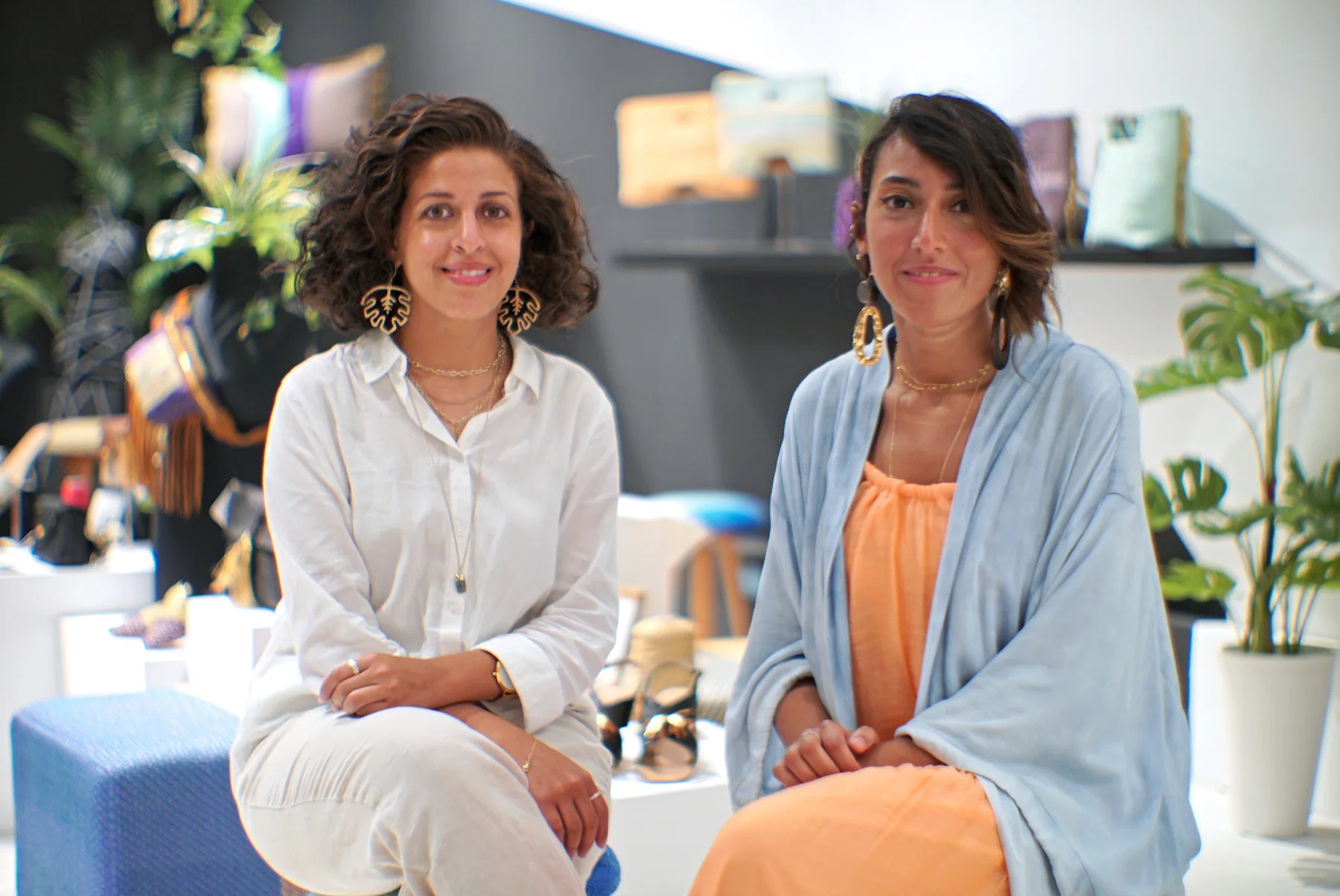It’s a humid morning in Downtown Cairo. The air hums with a mix of car horns and possibility.
Inside a minimalist office overlooking the Nile, Zeyad El Ghazaly, co-founder of Paymob, leans over a whiteboard covered in arrows and numbers that look more like a map than a plan. He’s not talking about valuations or exits; he’s talking about trust.
“Egypt doesn’t need another startup,” he says, smiling. “It needs companies people can believe in.”
It’s a simple line, but it captures the soul of Egypt’s new entrepreneurial class — founders who are ambitious, yes, but also deeply aware that growth without grounding is chaos. They are builders of what many are calling Egypt’s New Economy — an ecosystem that values integrity as much as innovation, legacy as much as liquidity.
1. From Hustle to Heritage
Over the past decade, Egypt has evolved from a frontier market to a breeding ground for scalable startups. In 2015, Cairo’s ecosystem was raw: coworking spaces like The GrEEK Campus were experiments, venture funds were rare, and pitching to investors often meant explaining what “startup” even meant.
Today, Egypt boasts over 600 active startups, 80+ venture deals a year, and growing regional clout. But behind the numbers is a shift that’s far more cultural than financial.
“The first wave was about disruption,” says Laila Hassan, General Partner at Raine Ventures. “This one is about endurance.”
Founders once obsessed with speed are now focused on sustainability — not the greenwashed kind, but the kind that keeps people, cash flow, and culture alive. The conversation has matured: from ‘how fast can we scale?’ to ‘how long can we stay?’
It’s a generational correction. Cairo’s new founders understand that legacy is not built in funding rounds — it’s built in trust.
2. The Rise of the Responsible Founder
In the polished halls of AUC Venture Lab, a program once known for training tech entrepreneurs now runs workshops on ethics and leadership. “It’s not a trend,” says AUC’s Director, Heba Ali. “It’s a necessity.”
She explains that Egyptian founders are realizing that scaling too fast without social grounding can backfire. “Customers in Egypt are emotionally invested,” she says. “They don’t just buy your product — they buy your story. You break that trust once, and it’s over.”
Enter the Responsible Founder — a new archetype in Cairo’s business scene. They’re as likely to quote Brené Brown as they are Warren Buffet. They talk about community, mental health, and purpose-driven profit.
Take Ahmed Badr, co-founder of Egypt Ventures, who recently launched a mentorship program connecting first-time founders with corporate veterans. “We’ve been chasing valuation for a decade,” he says. “Now we’re chasing validation — of values.”
He pauses, then adds:
“If your company grows but your people don’t, you’ve failed.”
3. A New Kind of Capital
It’s not just founders changing — investors are too.
“Capital has matured,” says Nouran Fahmy, an angel investor and ex-banker turned fund advisor. “In 2016, we threw money at every pitch deck with an app. Now, we’re funding founders, not ideas.”
The criteria have shifted. Traction still matters, but so does temperament. “We invest in resilience,” she adds. “Because in Egypt, nothing goes to plan — not the economy, not the politics, not the weather.”
Funds like Flat6Labs, Algebra Ventures, and Disruptech are integrating mentorship and governance into their models. Founders now attend sessions on emotional intelligence and leadership as part of funding agreements. “It’s Cairo’s version of venture therapy,” jokes Fadi Antaki, Managing Partner at A15.
But beneath the humor lies evolution. Egypt’s ecosystem, once fueled by adrenaline, now runs on awareness.
4. Cairo’s Entrepreneurial Geography
Walk through Cairo today and you can trace its economy through neighborhoods.
- Zamalek holds the city’s creative entrepreneurs — branding studios, boutique consultancies, ethical fashion ateliers.
- Maadi is the hub for wellness founders and sustainability startups.
- Downtown remains the spiritual home of rebellion — co-working spaces filled with tech dreamers and caffeine.
- New Cairo houses the new money: fintech, real estate, and logistics ventures.
Each district has a pulse, and together they form a living map of Egypt’s transformation.
“It’s like each neighborhood tells a part of our economic story,” says Omar Sakr, founder of coworking chain Urban Station. “You can feel ambition evolving in real time.”
Cairo’s skyline reflects this shift — old villas becoming incubators, art galleries doubling as investor meetups, and rooftop bars moonlighting as think tanks.
5. The Female Frontier
One of the most defining features of Egypt’s new economy is female leadership.
Over 35% of new startups launched in 2024 had at least one woman co-founder — the highest percentage in the region.
“It’s not a movement,” says Nour Al Hassan, founder of Tarjama, “it’s the market catching up.”
In Cairo, women are leading across industries:
- Deana Shaaban is redefining sustainable fashion production.
- Mona Ataya built Mumzworld, now expanding into education.
- Mai Medhat, co-founder of Eventtus, sold her company and reinvested her capital into mentoring female tech founders.
This visibility has inspired younger women to enter the ecosystem, but it’s also changing the tone. “Women build differently,” says Laila Hassan. “They think about systems — not just success.”
6. Culture as Currency
Cairo’s entrepreneurs are learning something Silicon Valley forgot — that culture compounds faster than capital.
At Elmenus, the team spends one morning each week cooking together.
At Khazna, employees choose one social cause every quarter to fund as a team.
At KarmSolar, sustainability isn’t a buzzword — it’s a daily ritual.
These gestures may sound small, but they’re changing the DNA of Egypt’s corporate world. Startups are becoming microcultures of how Egypt’s youth imagine the future: flexible, purposeful, and emotionally intelligent.
“Culture is our strategy,” says Omar Radi, co-founder of Elmenus. “Because products change, but people stay.”
7. The Weight of Reality
Of course, not every story is romantic. Cairo’s economy remains volatile; inflation eats through margins, and funding winters freeze momentum. Many founders have folded quietly, exhausted by bureaucracy or capital droughts.
“Building in Egypt is like building during an earthquake,” says Ali Hussein, founder of a logistics startup. “Everything moves while you’re building.”
Yet, resilience remains Egypt’s most undervalued export. Founders here adapt with creative elasticity — pivoting business models overnight, surviving on grit where others would give up.
It’s not optimism. It’s muscle memory.
8. The Rise of Conscience
Ask Cairo’s founders what drives them now, and the answers sound almost spiritual.
They talk about alignment, about meaning, about contributing something that lasts.
“I’m not interested in unicorns,” says Ahmed Badr. “I’m interested in institutions — companies that will outlive their founders.”
In his office, the walls carry framed photos of Egypt’s industrialists from the 1950s — Talaat Harb, Osman Ahmed Osman, and Mahmoud El Gammal.
“These people built with permanence,” he says. “They didn’t call themselves founders — they called themselves citizens.”
It’s that blend of patriotism and pragmatism that defines Cairo’s modern entrepreneurs — global in vision, Egyptian in instinct.
9. The Regional Moment
Egypt’s startup ecosystem is no longer looking for validation — it’s exporting it.
Paymob expanded into Saudi Arabia. MaxAB raised over $100 million to digitize supply chains across North Africa. Halan, Egypt’s first unicorn, is proving that impact-driven fintech can be profitable at scale.
Investors from the UAE and Saudi Arabia are turning their eyes toward Cairo, not just for returns, but for resilience. “Egypt has something you can’t buy — pressure-tested talent,” says Sami Al Rashed, a Saudi investor. “They know how to win in chaos.”
This influx of attention is creating a flywheel effect: regional capital funding local innovation, and local innovation fueling regional expansion.
10. The Legacy Builders
As Egypt stands at this economic inflection point, a new archetype of leader is emerging — The Legacy Builder.
They think generationally, act locally, and design globally. They see Egypt not as a challenge, but as a classroom.
“We’re not trying to escape Egypt anymore,” says Laila Hassan. “We’re trying to elevate it.”
From fintech to fashion, healthtech to design, Cairo’s founders are building not just businesses, but blueprints for how ambition can coexist with empathy.
They are the children of chaos — fluent in uncertainty, allergic to stagnation, and addicted to growth. Yet, unlike their predecessors, they understand that the truest form of progress is continuity.
“The next Egyptian miracle won’t be in oil or tourism,” Ahmed Badr says. “It’ll be in belief — in ourselves, in our systems, and in the fact that we can build beautifully here.”
He pauses, then looks out the window at the Nile shimmering beneath morning haze.
“We’ve spent a decade chasing scale,” he adds softly. “Now, we’re chasing soul.”




